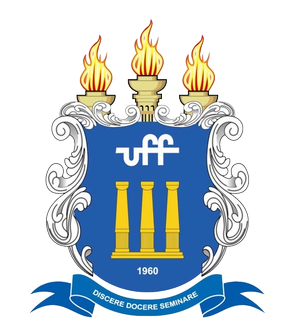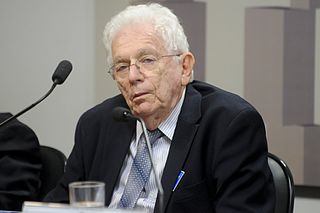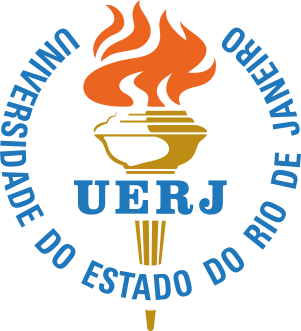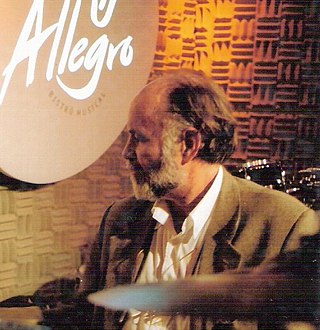
Rio de Janeiro, or simply Rio, is the capital of the state of Rio de Janeiro. It is the second-most-populous city in Brazil and the sixth-most-populous city in the Americas.

Rio de Janeiro is one of the 27 federative units of Brazil. It has the second largest economy of Brazil, with the largest being that of the state of São Paulo. The state, which has 8.2% of the Brazilian population, is responsible for 9.2% of the Brazilian GDP.

Niterói is a municipality in the state of Rio de Janeiro, in the southeast region of Brazil. It lies across Guanabara Bay, facing the city of Rio de Janeiro and forming part of the Rio de Janeiro Metropolitan Area. It was the capital of Rio de Janeiro, as marked by its golden mural crown, from 1834 to 1894 and again from 1903 to 1975. It has an estimated population of 515,317 inhabitants (2020) and an area of 129.375 km2 (49.952 sq mi), making it the fifth most populous city in the state. It has the highest Human Development Index in the state and the seventh highest among Brazil's municipalities in 2010. Individually, it is the second municipality with the highest average monthly household income per capita in Brazil and appears in 13th place among the municipalities of the country according to social indicators related to education. The city has the nicknames of Cidade Sorriso.

The Fluminense Federal University is a Brazilian public higher education institution located mainly in Niterói and in other cities of Rio de Janeiro state. It was first established on December 18, 1960, with the name of Universidade Federal do Estado do Rio de Janeiro (UFERJ), through an integration of different academic colleges in the city of Niterói. On November 5, 1965, the current name became official.

The Federal University of Rio de Janeiro (UFRJ), alternatively known as University of Brazil, is a public research university in Rio de Janeiro, Brazil. It is the largest federal university in the country and is one of the Brazilian centers of excellence in teaching and research.

The State of Guanabara was a state of Brazil from 1960 to 1975, which included the city of Rio de Janeiro. It was named after Guanabara Bay to the east of the state. It was created from the territory of the old Federal District when the federal capital moved from Rio de Janeiro to Brasília and a new Federal District was erected around the new capital. In 1975 the State of Guanabara was merged with the surrounding State of Rio de Janeiro, within which its territory became the Municipality of Rio de Janeiro.

Science and technology in Brazil has entered the international arena in recent decades. The central agency for science and technology in Brazil is the Ministry of Science and Technology, which includes the CNPq and Finep. This ministry also has a direct supervision over the National Institute for Space Research, the National Institute of Amazonian Research, and the National Institute of Technology (Brazil). The ministry is also responsible for the Secretariat for Computer and Automation Policy, which is the successor of the SEI. The Ministry of Science and Technology, which the Sarney government created in March 1985, was headed initially by a person associated with the nationalist ideologies of the past. Although the new minister was able to raise the budget for the science and technology sector, he remained isolated within the government and had no influence on policy making for the economy.
The Prêmio José Reis de Divulgação Científica is an annual honor awarded by the Brazilian Council of Scientific and Technological Development (CNPq) to the institution, media organization, publication, or individual who most contributed to the dissemination and public awareness of science and technology in Brazil. It is thus named in honor of Dr. José Reis, a Brazilian biologist and science writer who was one of the pioneers in the field.

Simon Schwartzman is a Brazilian social scientist. He has published extensively, with many books, book chapters and academic articles in the areas of comparative politics, sociology of science, social policy, and education, with emphasis on Brazil and Latin America. He was the President of the Brazilian Institute for Geography and Statistics (IBGE) and is a retired professor from the Federal University of Minas Gerais. He is member of the Brazilian Academy of Sciences, holder of the Grand Cross of the Brazilian Order of Scientific Merit (1996). He is currently associate researcher at the Institute for Studies in Economic Policy Instituto de Estudos de Política Econômica / Casa das Garças - Rio de Janeiro.

Rio de Janeiro State University is a public research university in the state of Rio de Janeiro, Brazil. It is one of the largest and most prestigious universities in the country. The university's law and medical schools are among the best in the nation. Its Biology, Social Science, Nursing and Philosophy courses are also highly praised, as stated by Guia do Estudante.
The Federação de Futebol do Estado do Rio de Janeiro, usually known by the acronyms FERJ and FFERJ, manages all the official football tournaments within the state of Rio de Janeiro including the Campeonato Carioca, the Campeonato Carioca Série B1, the Copa Rio, and the Campeonato Carioca de Futebol Feminino. It was founded in 1978.

The Federal Rural University of Rio de Janeiro is a public university located in Seropédica in the State of Rio de Janeiro, Brazil. It possesses the largest campus among Latin American universities and is known for being the first university to offer agriculture related courses in Brazil.

Yvonne Lara da Costa OMC, better known as Dona Ivone Lara, was a Brazilian singer and composer. Known as the Queen of Samba and Great Lady of Samba, she was the first woman to sign a samba-enredo and take part in a wing of composers in the school, Império Serrano.

Mário Negrão Borgonovi is a Brazilian composer, drummer and percussionist.
The following is a timeline of the history of the city of Rio de Janeiro, Brazil.
The Industry Social Service of the State of Rio de Janeiro comprehends SESI's work in Rio de Janeiro state. The institution focuses in improving work environments, quality of life and education levels of collaborators from Rio de Janeiro's enterprises. Through programs and mobile units, it carries out actions related to health, education, sports, leisure, culture, occupational health, work safety and environmental protection. These activities are aimed at workers and companies, as much as to society in general. SENAI Rio's history is parallel to the Brazilian industrial development and its designation accompanies Rio de Janeiro's changes, as when it became a capital and was renamed Guanabara state.

Maria Laura Moura Mouzinho Leite Lopes or Maria Laura Mouzinho Leite Lopes or Maria Laura Lopes was a Brazilian mathematician, the first Brazilian woman PhD in mathematics, specializing in Mathematics education.














